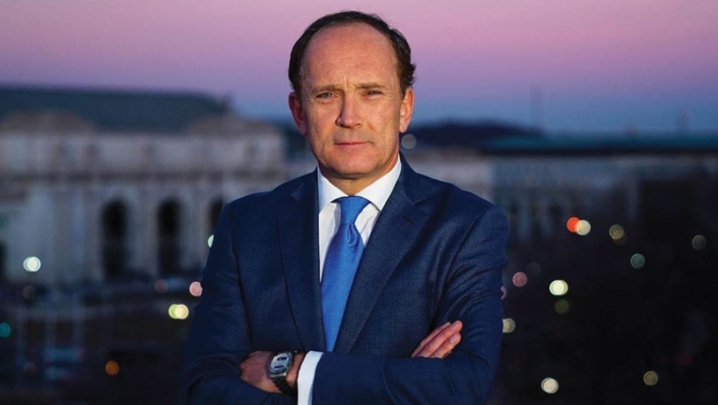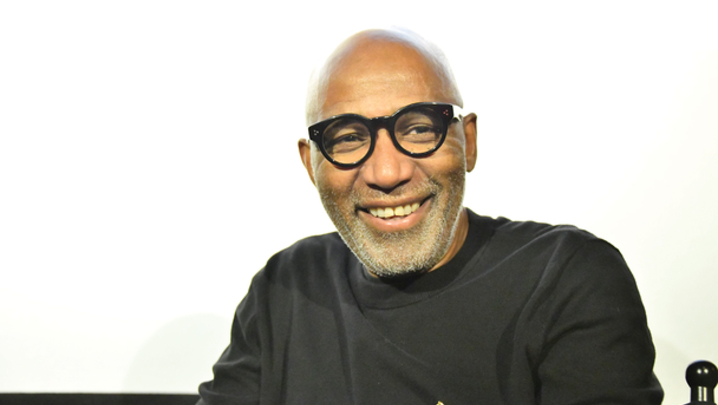Andrew Sheldon warns that the Government’s broadcasting reforms are not what indies based outside London want.
Head down, develop, produce… and repeat. It’s the rhythm of life for most indies in the North of England. And somehow, somewhere, the next commission will arrive.
But the industry in Manchester, Leeds and elsewhere in the UK needs to lift its head. The year began with confidence, with a fading pandemic, healthy order books, larger London companies putting boots on the ground, and the freelance community awash with offers of work.
All this was backed by hard commitments to factual production in the regions from Channel 4 and the BBC, with specific initiatives aimed at growing and sustaining talent. Channel 5 continued to back its long-held assertion that quality and value are best achieved beyond the M25.
Then, beneath our feet, the plates began shifting. First, the news about the BBC licence fee and then the renewed effort to privatise Channel 4.
Not too long ago, we often felt that the BBC viewed “the North” as a mythical place just beyond “the Wall” in Game of Thrones. However, with new commissioners based in Newcastle and Leeds, and welcome tenders/
invitations to pitch aimed at helping companies put down roots in underserved places, things have improved.
Culture secretary Nadine Dorries’ announcement on freezing the licence fee commits the nation’s broadcaster to a generation of cost-cutting introspection. It is likely to result in small indies in the North and elsewhere having reduced tariffs and fewer opportunities.
And now, despite the vast majority of people in the industry being firmly opposed to it, Channel 4 is up for grabs again. The broadcaster’s commitment to Manchester, Leeds, Bristol, Cardiff, Glasgow and Belfast is critical to the ambitions of indies based in the nations and regions. It is a practical example of the much-vaunted “levelling up”.
Talent is brought in from all backgrounds, regardless of their birthplace or their accent and becomes a part of the global success story that is British television.
The Government says privatisation is about protecting this unique role. How does a likely sale to a US corporation, with commissioners in Los Angeles and New York who think Gateshead or Blackburn are just outside London, deliver that?
ITV might win the race and at least keep Channel 4 in UK ownership for now. However, what are the odds against it also being in the arms of one of the US giants within five years?
In fact, it’s entirely possible that, before too long, all the SVoDs, AVoDs and the key UK indies will have consolidated into the hands of six or seven mainly US-based corporations. In that scenario, the last man standing for PSB values and the grassroots of the industry will be an underfunded BBC.
Those US companies will ultimately decide what British audiences watch. You can predict that their decisions will be based on profit and loss, and not portrayal, representation or opportunity, or long-term support for the independent sector.
Much will be said about legally binding commitments for the new owners, but expect a steady erosion of any licence conditions, especially since the plan is for Channel 4 to have a significant in-house production arm. At that point, smaller indies – maybe 200 of them across the UK – will see their prospects diminish.
Already, Channel 4 has apparently attracted expressions of interest from 24 buyers. This suggests there will be competitive tension fuelling a speculative price tag of up to £2bn. That’s the one moment when the DCMS will have genuine leverage. It must use it.
If it is serious about protecting the industry in a wider sense, it should go beyond the existing remit and ask for long-term guarantees of specific support for indies with a turnover of less than £10m, extended quotas for out-of-London hours, and Channel 4 to have its HQ beyond the M25.
Do that and some of the 96% of people who objected to the sale might take a more pragmatic approach… though I’m not betting on it.
Andrew Sheldon is creative director and co-founder of True North.





